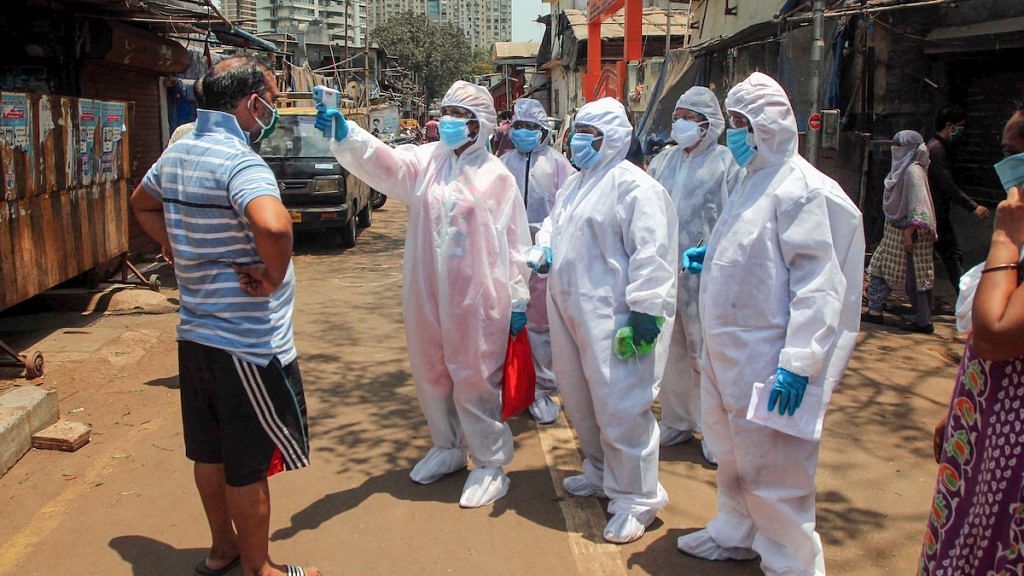New Delhi: The Indian Council of Medical Research (ICMR), the country’s apex health research body, plans to conduct an observational study to find out if the antimalarial drug hydroxychloroquine (HCQ) can prevent Covid-19 infection in healthcare workers.
The study was registered on the Clinical Trials Registry-India on 4 May.
The ICMR has recommended that health workers and those coming in close contact with Covid-19 patients should take HCQ as a prophylaxis (prevention) to reduce the risk of contracting the infection.
However, whether the drug is an effective preventive measure is yet to be ascertained.
The study
The study will be led by ICMR scientist Suman Kanungo. As part of the study, researchers will observe 2,000 health workers in five cities for up to four months.
The study will be conducted in AIIMS-Bhubaneswar, AIIMS-Jodhpur, AIIMS-Patna, Apollo Hospitals in Chennai, Maulana Azad Medical College, Lok Nayak Hospital and Ganga Ram Hospital in New Delhi — all dedicated to manage Covid-19 cases.
Only those health workers — doctors, nurses, paramedical staff, lab technicians, sanitation workers and others — who will test negative for Covid-19 and those who are willing to take part in the study will be taken into consideration.
Data will be collected on their exposure history, symptoms and comorbidities using a structured questionnaire.
The objectives of the study are to estimate the incidence rate of SARS-CoV-2 infection as well as side-effects in health workers who will be taking the drug.
ThePrint contacted Kanungo for a comment, but he refused to say anything about the study.
Also read: Hydroxychloroquine: The special drug Trump and the world are dialling PM Modi for
Previous research on HCQ as prophylaxis
The ICMR had last month said at a press briefing that an observational study on the side-effects of HCQ as a prophylaxis on about 480 health workers had been conducted.
R. Gangakhedkar, ICMR chief epidemiologist, had said that 10 per cent of those who took the drug experienced abdominal pain, while 6 per cent reported nausea-like symptoms. About 1.3 per cent had hypoglycemia or low blood sugar, said Gangakhedkar.
However, he did not elaborate on whether the drug showed any benefits as a prophylaxis against Covid-19.
In an article published in The Lancet journal last month, researchers from the Mahatma Gandhi Institute of Medical Sciences in Sevagram, Maharashtra, and Safdarjung Hospital, Delhi, wrote, “Although some in-vitro evidence supports the antiviral activity of hydroxychloroquine and its precursor chloroquine, there is no peer-reviewed publication that evaluates either drug for exposure prophylaxis of SARS-CoV-2 infection.”
The researchers also said this lack of evidence “hardly justifies state-endorsed, widespread use of hydroxychloroquine for prophylaxis”.
Also read: How the humble hydroxychloroquine has become India’s unlikely new global strategic asset
